Derek Thompson's Blog, page 29
March 7, 2012
The Lucky Seven Meme comes to call
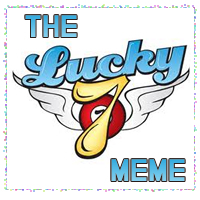 I've been tagged by my fellow scribe and all-round creatix Chloe to take part in Jaycee's Lucky Seven Meme. Here be the rules:
I've been tagged by my fellow scribe and all-round creatix Chloe to take part in Jaycee's Lucky Seven Meme. Here be the rules:1. Go thou to page 77 of your current MS
2. Get thee hence to line 7
3. Copy down the next 7 lines - sentences or paragraphs - and post them as they're written. No cheating
4. Tag 7 authors
5. Let each and every one of them know(Unwritten rule - share the literary love)
___________________________________
We spoke once or twice a week; she'd talk about New York while I sat on the stairs, rustling the map to pinpoint the attractions she wanted to take me to. Places like the Metropolitan Museum of Art began to take on mythical status, even though the only museums I had frequented since leaving school were: a) The Natural History, in my teens, in a futile attempt to meet girls; and b) The British Museum, to see the Egyptian exhibits.
To say we took things slow would be an understatement. It was three weeks before we got around to the finer details of my stay. And then it hit me that the Civil Service would only grant me two or three weeks of leave.
"Well," Helen said in a nasally twang that made me laugh, "who is to say you'll go back to the same job? Maybe you won't even come back at all?"
___________________________________And my own lucky seven writers? Well, there are many more than seven, so here are a few from the network:
1. Sinclair Macleod2. Martin Bodenham3. Brian Keaney4. Vonnie Hughes5. Cordelia Dinsmore6. Arley Cole7. E H James
I hope they will all participate to. And if there's no page 77 - or it's unfit for the faint-hearted, there's always page 7 as a fallback!
March 2, 2012
Pump ups the volume

Ever since we moved here, the rain fed pump in the yard has served us well for watering the plants out back, as well as the front garden. Like many homes in our area we're on a water meter, so the pump makes economic as well as eco sense. The slight downside is that you have to fill the top chamber (there's bound to be a technical word for it) and then pump like billy-oh and away you go. The only thing is, when you're carrying watering cans through to the front garden, you frequently have to reprime the pump.
About a month ago, we noticed that the pump had to be primed more often and that we got less water out. Nobody likes a bad deal, so we took the pump apart, using my trusty antique mini wrench (available for £1 at all good carboot sales), to see what the problem was. No, here's the thing. Two replacement seals later, not only does the water flow like Niagara (I am prone to exaggeration), but we actually don't need to fill the top chamber at all.
You don't need me to draw you a picture of the relevance of the pump to writing. That won't stop me of course.
Things aren't always best served being done the way they've always been done - the way we've been told they have to be done. The people who sold us the house told us we had to fill the pump - it probably hadn't even occurred to them that it could be any other way.
And what about those seals? Well, and I'm no scientist here (I was, after all, the kid who tried to put the radioactive sample from physics class in hs mouth to 'see what would happen'), but I presume it's to do with maintaining a certain level of pressure? Answers on a postcard. My point is that the new seals prevent water or air escaping, so the pump can do the job it's meant to do.
As writers, we see so many models of success. It's easy and often comforting to think that if we just follow Method A we'll be fine. There are no guarantees in life (except death and taxes, apparently) and, let's face it, most people 'only sing when they're winning'. It's important to question how things are done, and whether they can be done better or even just differently - if it's good enough for evolution, it's good enough for writers.
The seals reminded me of all the things I do that release the pressure and allow the water to drain away in my writing. Too much focus on the problems, too many activities that take me away from the task. They needn't be unpleasant either. A chance to catch up with friends, something fascinating on the web, even...gulp...some Social Media. All well and good, but please...not when you're supposed to be working.
Otherwise your creative flow could be as much use as a yard of pump water.
February 27, 2012
A Cynic's Guide to Social Media

I suspect Social Media is a bit like sex - if the idea fills you with dread or gives you a headache, you're probably doing it wrong. And if the idea of an SM (no, not that one...) cold turkey leaves you in a panic, maybe you need to look at things from a different angle.
After David French and I wrote The Little Book of Cynics, several people asked us if it was humour or genuine cynicism. We knew then that we had found our brand. With that in mind, here's a Cynic's Guide to Social Media.
Facebook - millions of people in a crowded square, all trying to sell the same thing at the same time - themselves. And they do this by wearing bright colours, shouting and being quirky. LOL.
LinkedIn - a massive dinner party where everyone tries to simultaneously pass out their own busness cards, while giving a cursory glance to everyone else's cards, adopting the standard phrase, "We should do business some time," and waiting for someone else to buy something from them.
MySpace - lots of people at a party where most people have left, all telling one another that now the party can get interested, with no one having any idea how to make that happen.
Twitter - Mass texting for those without a mobile. Perfect for those with a little something to say and very little time to say it.
Website - a shop front. Customers will be coming soon, probably, because the Google sandwich board man just walked past and waved at you.
Blog - a constantly revised press release for your shop front. So you leave your shop and walk the streets handing out press releases to strangers.
February 24, 2012
Mainly off the plane

Some writers keep their old journals because they're certain, somewhere in the pile, there's gold in them thar thoughts. Others are just lazy (my hand is up at this point) and some - you know who you are - will admit to being hoarders. So I'm starting my spring-cleaning early this year and here's what surfaced.
06/05/05
What is adventure, but the unexpected? We're at Land's End aerodrome and fog bound. The planes sit idle and sullen, somewhere in the gloom. Anne sits with a coffee, nursing it like a grduge. The aerodrome has modern chairs and an easy-clean carpet, but there is the faint whiff of an aerodrome from long ago. Of parcels and papers being delivered in the dead of night, of solitary pilots stranded together with only coffee and stories to keep them alert until the fog lifts. I will never know their world, nor will I feel their passion or their camaraderie, as they wait for permission to fly. But, as I gaze at the shrouded horizon, somehow it doesn't so bad at all. No bullets, no bravado; just a little more patience.
Note seen in the toilet: 'Please do not put anything in the loo except toilet paper.'
I wanted to write beneath it: 'I've crapped in the sink.'
07/05/05
So, the flight was fogbound and out-ofbounds. Skybus put us on a bus and trucked us down to the helicopter terminal. Two of the party (last in, first stuffed) could not be guaranteed a place. Anne found, to her disdain, that some crisps contain egg - but only after she'd eaten half of them. Her quote of the day: "What fucking idiot thought that one up?"
We watched a safety DVD (high tech!) about what to do on a helicopter in an emergency, unable to hear anything because of the noise of a helicopter landing. Finally on board, windswept and choked by fumes, we watched the cabin and wiring shudder as the pilot exeuted a flawlessly smooth take-off, banking hard left to impress a row of (presumably deaf) rabbits who ahd lined up on the edge of the field to watch. 20 minutes later, we landed at St Mary's. Adventure over? Hello, no. The boat came to collect us, took our £22 and sped us over to St Agnes, cutting across every bow wave possible. My quip about us paying now in case we fell overboard went down like a lead lifejacket.
A stomach yoga session later, we arrived at the quay on St Agnes. Our kindly host arrived with tractor and we rode on the back scoop, Ben Hur style, holding on for dear life and watching the back plate rattle without its holding pin on one side. Along the way, we trimmed a couple of hedges - with the side of the tractor, and tested a few potholes - with our spines. All in all, an adventure to be proud of - and it's only day one.
February 23, 2012
Compensation: nil - comrades in alms
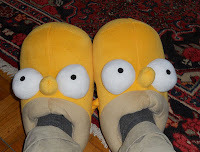
I enjoy Craigslist. Just so we're clear on that from the beginning.
I used to love it and flit from opportunity to opportunity like a beguiled honey bee. Then the novelty eventually wore off a little.
Still, I've made great contacts, earned good money and even, here and there, made enduring cyber buddies. Increasingly though, there's a wave of start-ups and try-outs that subscribe to the myth of the writer who lives on air and warm fuzzies. (And sometimes just tepid fuzzies.)
I've said my piece before, here and there, but it's always reassuring to see someone else waving a red flag at the bull (see what I did there...). So it's my great pleasure to quote freelance writer Daniel P Curran, who likes to tell it how it is.
Writers do not work for free.
For you to come on here and offer "publicity" or "exposure" who do you think you're trying to appeal to here? High school students?
Let me clarify many of us charge between $25-50 an hour for our services. 99% of us are way past the stage where just seeing our work published was enough. Guess what, we're mostly working adults who need to earn a living, JUST LIKE YOU!
By offering an "internship" you are basically dressing up a request for someone to work for free. What benefit will your no-name website be to me on my resume? None.
Writers do not work for free.
Would you ask your web designer to work for free? Your plumber? Your accountant? Do you think we have this disposable skill that can just pour itself out on the ground for your benefit? Oh sure, let me just draft some free content to drive your web traffic so you can pull in the cash!
Please, we're not idiots. We do not have time to "invest in a potentially great marketing opportunity where writers will receive a percentage of ad revenue once the site is up and successful!"
If you find someone who wants to be your "intern" they are either a terrible writer or just very naive and will soon quit when they realize they are wasting their time.
Fellow writers, I encourage you to flag posts where companies and individuals ask for free content under the paper thin pretense of an "internship" or "the opportunity to get noticed!" This is bullshit.
Writers do not work for free.
My thanks to Daniel for permission to share his thoughts.http://danielpcurran.wordpress.com/
February 17, 2012
We are family
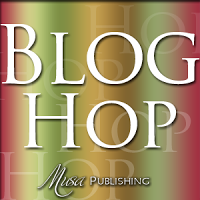 As much as we writers like to be independent souls, there is strength to be had in numbers. Within Musa Publishing there are, at the last count, 98 authors on the list. And more titles and writers are joining the list every month. It makes for lively discussions and has certainly given me an insight into genres I've never encountered before.
As much as we writers like to be independent souls, there is strength to be had in numbers. Within Musa Publishing there are, at the last count, 98 authors on the list. And more titles and writers are joining the list every month. It makes for lively discussions and has certainly given me an insight into genres I've never encountered before. Whether it's Regency, Romance, LGBT, Erotic or Young Adult, the mechanics of writing are the same. Blood, toil, sweat, tears and the occasional adverb (only occasionally, mind) all thunder through the keys to produce a story that will appeal to its target audience and hopefully readers new to the genre.
So, whatever you think your genre is, I invite you to take a adventurous trip through the blogs of my fellow Musans by using the buttons below. They're a welcoming bunch and they'll be glad to have you drop in. And why not leave a comment to let them know you've called?
(Had I a better mastery of blogspottery, I would have reviewed a few books and added the cover images, but for some reason I can only add one image at the top.)
February 12, 2012
She did it her way
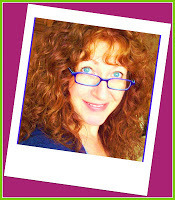 There are many benefits to being part of a writing community. You get to share in other people's success, you can receive valuable feedback from people who've walked down a similar road, and you can swap the odd contact or reference resource.
There are many benefits to being part of a writing community. You get to share in other people's success, you can receive valuable feedback from people who've walked down a similar road, and you can swap the odd contact or reference resource.I'm a regular visitor to the Strictly Writing blog and recently heard that fellow scribe, Deborah Riccio, has self-published her second book, Re:Becca So naturally, I wanted to find out what made her choose that route and what makes her tick.
Q1 What's your approach as a writer?
When I get an idea it has to 'work' in my head before I'll go anywhere with it, which seems like such an obvious thing to say now I've written it down. It might be the greatest idea I think I'm ever going to have, but it has to undergo the Interview from Hell in my Head. Yes, but what would happen IF… COULD this happen? Would it be too unbelievable if… (silly, considering it's fiction anyway). And the killer query: "Where do you see yourself in 200 pages' time?". If there's a plot that I think I could happily drive then the characters are secondary – until they hit the screen – and then they take over the whole story and I find the original 'idea' changing to accommodate them, not the other way round.
As an incredibly inquisitive person, teen writing allows me to be at my annoying, probing best. Teens want to know EVERYTHING and they are pretty much fearless in their pursuit of anything because adulthood hasn't dulled their perceptions yet. Whilst grown-ups wander about with the recession hanging over their heads, somewhere there's a girl in the 6th Form who is seriously worried her nail varnish might chip before morning break. It's a refreshing counterbalance.
Q2 What do you want readers to know about your work?
Above all that it's going to be an entertaining read; it won't be stuffed full of clichés and there won't be a predictable happy ending. The first book I put on Amazon, 'DEAD GOOD' is the first teenage book I ever tried my hand at. And I have Sarra Manning to thank for that. And my daughter, who was a massive Manning fan and left books lying about in the smallest room for me to pick up… too much information, I know. But it was these books that kind of gave me the permission if you like, to write straight from the gut – and a teenage gut is just such a myriad of emotions; they say and do things that adults worry might be socially unacceptable and they don't have the dreary baggage that adults have – you can get away with so much more writing with a teenage head on. I find teen writing a totally liberating experience (probably because I'm still fifteen in my mind).
Q3 What made you choose self publication, how did you find the process and have there been any surprises along the way? (Three for the price of one!)
After over a decade of 'serious' writing – i.e. printing out the first three chapters, angsting over the one-page synopsis and standing in queues in the post office with self-addressed return envelopes THEN The Wait….crossing off rejections (if and) when they came back, I finally got to the stage last year where I had three agents with the full manuscript of the same book. And you don't need me to tell you how great that felt. The three dwindled to two; the two to one and after I'd re-written the book three times (with 3 different endings) it was still met with a 'not for us, thanks' which really, really hurt.
The nuts'n'bolts process of self-publication was pretty easy really (although formatting was a bit of a nightmare). It was convincing my brain to actually do it that was the hardest thing to do. I couldn't quite equate self-publication with 'being a writer' because it wasn't something that was being validated and supported by either an Agent or a Publisher – I was doing this ALONE and it was scary. What if I actually am a sh*te writer and this is why I'm not represented and NOW everybody will know how crap I really am?
I guess in the end the Su-Bo in me won through and I thought 'soddit, this is me, take it or leave it. I don't even have a reputation to uphold.' I dreamed my dream. (Ha!)
The only surprise I've had is that this weekend 'DEAD GOOD' is on Kindle for free and downloads have rocketed (from 10 when it cost £2.01 to over 100), so I guess people just love a freebie. Luckily I'm not in it for the money and I'm delighted that so many people have clearly read the sample chapters and still downloaded it – that makes me smile. I had my first review yesterday – from somebody I DON'T actually know and it was such a thrilling thing to read. THIS is what it's all about.
Q4 Which authors and books have influenced you?
Along with Sarra Manning's teen books latterly, I'd have to say that it was 'Watermelon' by Marian Keyes back in the early 90s that made me realise I could do it. I loved that there was a place in the writing world for overweight women called Denise who ran off with the bloke in the downstairs flat whose wife was just about to give birth. I almost cried with joy when I realised it didn't all have to be about riding horses, being posh or being a film star that made it onto the bookshelves. Or jolly japes involving five chums, a border collie and lashings of ginger beer. I like a bit of realism, me.
Q5 What are you working on at the moment?
I've just put my second Young Adult book up on Amazon, 'Re:Becca' which is all about a teen who feels like she doesn't quite fit into the real world. She gets bullied a bit and when her parents take away her mobile, her internet connection and her iPad she thinks it's the end of Her World. Which, of course, it isn't.
I've started a Tandem book for this. Following the two bullies that make Becca's life a hell in Re:Becca, it's something I'm having a lot of fun with. Unsympathetic main characters are the best – who doesn't love Ebeneezer Scrooge or The Simpsons' Mr Burns? Of course I'm also hoping that some kind of 'message' comes through about bullying too, especially as it seems to be just as prevalent as it's always been. Its working title is: 'In Your Face'. Look out for it.
Q6 You're at a party filled with all sorts of professions. After the writers have left (taking the agents and editors with them...), which group of people do you gravitate towards next?
The stand-up comedians or the ones who look more like students. I guess they'd be having the most fun. I'd hate to get stuck with a Doctor or a Teacher or a Plumber – grown ups talk about the most boring things. I like that there's still a "what if" in a younger person's mind as opposed to the endless drudgery that inhabits an adult's world. And if it's a comedian, can it please be Dara O'Briain or Sarah Millican?
Q7 What did you dread being asked - and how would you answer the question?
Anything about Booker/Orange Prizes or Awards. They'd be deleted before I even attempted to answer, knowing or caring nothing whatsoever about them!
February 8, 2012
Lightbulb moments
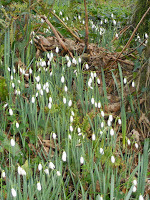
1. If you acted on every request to visit a site, check out a link, comment on a blog, read a blog and read the white paper you'd decided you had to download, you'd never get any actual work done (although you would make a lot of other people happy). It follows then that you can't keep everybody happy, so choose wisely and keep a balance between other people's needs and your own.
2. Competitions and publicity are both good for the soul and useful for raising your profile, but they don't always immediately result in increased sales. You have to fly that flag!
3. Those pellet-like things in the back garden, which look a little like miniature coffee beans are not the poo of some exotic mammal. They are in fact ivy berries. And if you'd realised this early on - or better yet listened to Anne - you could have saved 15 minutes of fruitless (excuse the pun) web searching.
4. When you've finished mourning the magazines and websites you've written for in the past that have gone bust, rejoice anew because the rights to the content are yours.
5. You're a writer not a marketeer (are they the ones in the mouse hats and t-shirts?). If nothing seems to be happening, go and write something.
6. Everything has its seasons and cycles. And each of those seasons has a purpose.
7. For some reason, people really like lists that contain a minimum of seven items.
January 31, 2012
What he said... aka thanks for that

While there is no magic formula, there are certain recurring themes in the 'How I Made It' stories of successful writers. They all had absolute faith. They all wrote with almost religious zeal and they all refused to take 'No' for an answer from life. Most drew upon their own personal experiences and few seem to have had a carefully controlled game plan. Many wrote several novels before getting their big break. Some hit paydirt on the first time out. Many have journalism as a training ground. All love words and felt compelled to tell their stories.
Use what you have. Get what you need. Tell your stories your way and learn your craft as a writer. That will make you more fulfilled, irrespective of whether it gets you published.
The problem with identifying paths and models of excellence is that we are also looking at the matter retrospectively - recognising someone who has achieved something and then asking how they did it. The assumption is not only that those positive behaviours and strategies can be replicated, but also that replicating them will, of itself, lead to some similarly quantifiable success.
Other problems arise in the process of quantification. If we look back at our own lives and achievements, the road to our goal is both hard to chart as a linear journey and excludes the elements of chance, timing and connections.
Add to that the lack of objectivity - for example, how do we even know when something can be considered a success at all - and it becomes apparent that definition of terms, factors and common perceptions is key. Perhaps all we can safely say is that some behaviour - discipline, goal setting, and an attitude of positive expectation about one's inner resources - is that these all make our success (chance, timing and connections - or the lack of them - notwithstanding) more likely. But a two-in-a-million chance is still more likely than a one-in-a-million chance, even though it is - to all intents and purposes - infinitesimally small.
What he said...

While there is no magic formula, there are certain recurring themes in the 'How I Made It' stories of successful writers. They all had absolute faith. They all wrote with almost religious zeal and they all refused to take 'No' for an answer from life. Most drew upon their own personal experiences and few seem to have had a carefully controlled game plan. Many wrote several novels before getting their big break. Some hit paydirt on the first time out. Many have journalism as a training ground. All love words and felt compelled to tell their stories.
Use what you have. Get what you need. Tell your stories your way and learn your craft as a writer. That will make you more fulfilled, irrespective of whether it gets you published.



